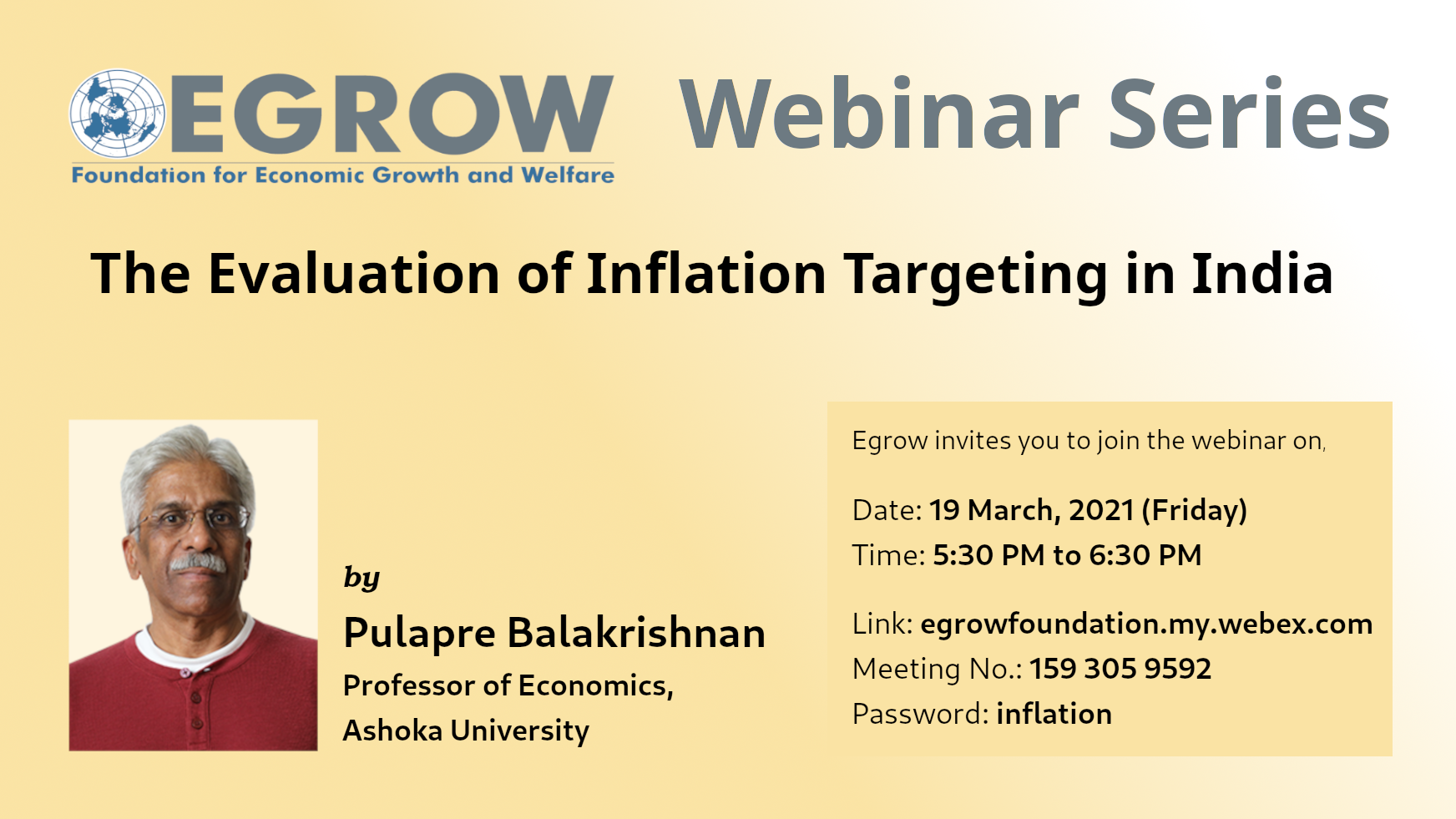The Evaluation of Inflation Targeting in India

Webinar Link
Meeting No: 159 305 9592
Password: inflation
Abstract
A line of argument found in some recent evaluations of inflation targeting in India is that it has succeeded in anchoring expectations. Presumably, this claim is based on the feature that the inflation rate has mostly remained within the prescribed band since 2016 when the inflation targeting regime was formally adopted. The presentation evaluates this claim by reference to the recent history of inflation in India and through econometric tests. The results of the latter are conclusive, offer a data-congruent diagnosis of the inflationary process in India, and account for the trajectory of inflation in India since 2016. Finally, the presentation assess the impact that inflation targeting has had on the economy.
About the Speaker
Pulapre Balakrishnan was educated at Moscow, Madras and New Delhi, and trained as an economist at Oxford and Cambridge. His published work spans the inflationary process, the measurement of productivity, the transition to a market economy in post-communist Europe, agricultural decline in Kerala and economic growth in India. Though published in the profession's journals, he is perhaps better known for his books 'Pricing and Inflation in India' (OUP, 1991) and 'Economic Growth in India: History and Prospect' (OUP, 2010). He has held appointments at Oxford University, the Indian Statistical Institute at Delhi and the Indian Institute of Management at Kozhikode. He has served as Country Economist for Ukraine at the World Bank and as a consultant to the ILO, RBI and UNDP. During 2010-13 he was the Director of the Centre for Development Studies at Thiruvananthapuram. Currently Professor of Economics of Ashoka University, Sonipat, he has for close to three decades by now intervened in the public debate on India's economy through his popular writing. Balakrishnan is a recipient of the Malcolm Adiseshiah Award for Distinguished Contribution to Development Studies (2014).